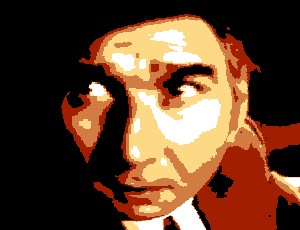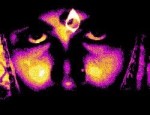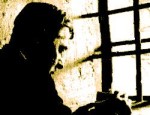Biography: life and films

Michel Piccoli was born on 27th December 1925, in Paris, France. He grew up in a family of musicians - his father, an Italian immigrant, was a violist; his mother a pianist. It was at boarding school where, as an introverted teenager, the young Michel developed a profound love for the stage. Having opted to become an actor at the age of 18, Piccoli studied drama under Andrée Bauer-Thérond and then trained as an actor at the René Simon drama school in Paris. He began his stage career with the Renaud-Barrault theatre company at the Théâtre de Babylone in Paris.
Throughout the 1950s, Michel Piccoli was busy in the theatre, but he slowly started to make a name for himself in cinema, appearing in a succession of minor roles. His first screen appearance was in Christian-Jaque's Sortilèges (1945), but his first proper film role was in Louis Daquin's Le Point du jour (1949). He subsequently lent his talents to Jean Renoir in French Cancan (1954) and René Clair in Les Grandes Manoeuvres (1955). It was not until Jean-Pierre Melville's Le Doulos (1962) that Piccoli had properly established himself as a film actor. He then acquired instant international fame through his leading role in Jean-Luc Godard's Le Mépris (1963), in which he starred opposite Brigitte Bardot. His celebrity in France was cemented when he played Dom Juan in Marcel Bluwal's popular television film Dom Juan ou Le festin de Pierre in 1965.
A serious actor with a well-developed interest in literature, Michel Piccoli had little enthusiasm for main stream cinema and so was naturally drawn to auteur films. His combination of talent and sobriety made him an attractive proposition for auteur filmmakers and he worked with some of the best, including: Agnès Varda (Les Créatures, 1966), Alain Resnais (La Guerre est finie, 1966), Jacques Demy (Les Demoiselles de Rochefort, 1967), Claude Chabrol (Les Noces rouges, 1973) and Louis Malle (Milou en mai, 1990). He was also sought after by reputed film directors outside France, notably Alfred Hitchcock (Topaz, 1969), Marco Ferreri (La Grande bouffe, 1973) and Manoel de Oliveira (Je rentre à la maison, 2001). Throughout his career, Piccoli supported up-and-coming young filmmakers, both as an actor and as a producer. His protégés include Jacques Doillon (La Fille prodigue, 1981), Leos Carax (Mauvais sang, 1986) and Bertrand Tavernier (Des enfants gâtés, 1977).
The French film director for whom Michel Piccoli appeared to have the greatest affinity was Claude Sautet. Piccoli starred in four of Sautet's best-known films, invariably cast as a symbol of bourgeois respectability whose quest for personal fulfilment appears destined to end in failure. Sautet did more to humanise Piccoli than perhaps any other filmmaker, particularly when the actor was cast alongside Romy Schneider (in Les Choses de la vie and Max et les Ferrailleurs), the actress who became one of Piccoli's dearest friends. In most of his other films, Piccoli usually comes across as a more complex and enigmatic individual, his characters ranging from the creepy boss from Hell in Une étrange affaire (1981) to the unimaginably grotesque acid bath killer in Le Trio infernal (1974). This darker, more disturbing Piccoli can be seen in Michel Deville's films, notably Le Paltoquet (1986), and in virtually all the films he made for Luis Buñuel, in particular Le Journal d'une femme de chambre (1964), Belle de jour (1967) and Le Charme discret de la bourgeoisie (1972).
Throughout most of the 1970s, 80s and 90s, Michel Piccoli was one of the most visible faces in French cinema, and he consistently gave performances of the highest quality, whether he was playing the lead or was in a small supporting role. He won the Best Actor award at the Cannes Film Festival in 1980, for his role in Marco Bellocchio's Salto nel vuoto (a.k.a. A Leap in the Dark) (1980), and two years later he was awarded a Berlin Silver Bear for his performance (one of his most chilling) in Pierre Granier-Deferre's Une étrange affaire (1981). Although he has been nominated four times for a César (for La Belle noiseuse, Milou en mai, La Diagonale du fou and Une étrange affaire), he has yet to win the award.
In the 1980s. Michel Piccoli resumed his stage career, starring in Peter Brook's acclaimed Paris productions of Anton Tchekhov's The Cherry Orchard (1981, 1983) and Patrice Chéreau's staging of Marivaux's La Fausse Suivante (1985). Since 2000, the actor has devoted more of his time to his stage work, and in 2006/7 he garnered considerable critical acclaim for his portrayal of Lear in André Engel's production of Shakespeare's King Lear at the Odéon Théatre-Atelier Berthier in Paris. In the 1990s, Piccoli turned his hand to film directing, starting with a segment for the Amnesty International film Contre l'oubli (1991). His first feature was Alors voilà (1997), followed by La Plage noire (2001) - both films are idiosyncratic, darkly introspective works which, despite some obvious flaws, are strangely beguiling and reflect their author's trademark combination of gravity and irony.
For many years, Michel Piccoli has been actively engaged with leftwing politics and is an ardent supporter of Amnesty International. For a time he was married to the actress Eléonore Hirt (with whom he had a daughter, Anne-Cordélia Piccoli), and then to the singer Juliette Gréco. He is presently married to the screenwriter Ludivine Clerc. Although he is now well into his eighties, Michel Piccoli remains active and shows no sign of wanting to retire from the profession to which he has devoted his life. Having taken the lead in Nanni Moretti's Habemus Papam (We Have a Pope) (2011), he has secured a starring role in Leos Carax's first film for over a decade, Holly Motors (2012).
After a glorious career in which he garnered enduring worldwide recognition for his work, Michel Piccoli bowed out at the age of 94. He died on 12th May 2020, after suffering from a stroke at his home in Saint-Philbert-sur-Risle, in the Normandy region of northern France.
© James Travers 2012
The above content is owned by frenchfilms.org and must not be copied.
Filmography
Click here to view complete list of films...The best of Indian cinema

The best films of Ingmar Bergman

The best of Japanese cinema
